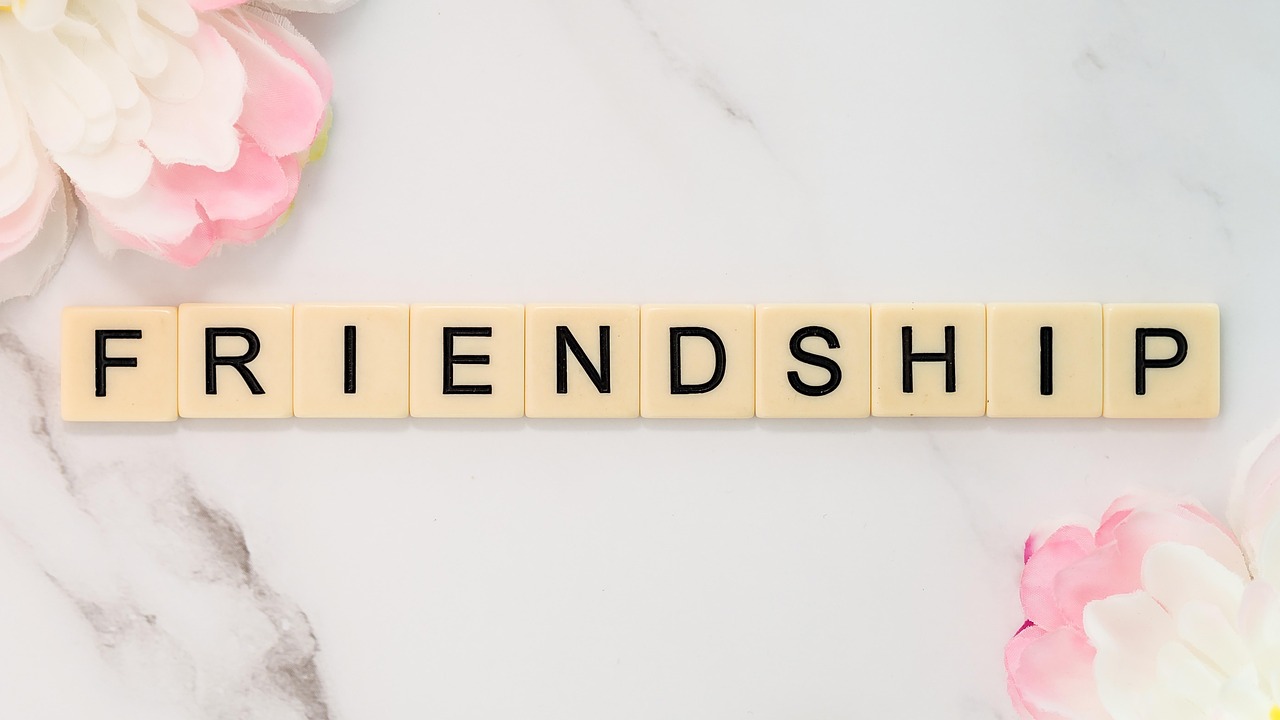Navigating the intricate landscape of friendships can be a rewarding journey, but it’s not without its bumps. Just like any meaningful relationship, friendships thrive on mutual respect, understanding, and, crucially, well-defined boundaries. These unspoken or spoken agreements set the stage for healthy interactions, protect our emotional well-being, and ensure the longevity of these important connections. Let’s delve into the importance of friendship boundaries and how to establish them effectively.
Understanding Friendship Boundaries
What Are Friendship Boundaries?
Friendship boundaries are the limits and guidelines you establish in your friendships to protect your emotional, mental, and physical well-being. They define what you’re comfortable with and what you’re not, ensuring that your friendships remain positive and supportive relationships. Think of them as the guardrails on a road, keeping you safely on track.
Why Are Boundaries Important in Friendships?
Without clear boundaries, friendships can become unbalanced, draining, or even toxic. Establishing boundaries helps you:
- Maintain your individuality: Boundaries help you stay true to yourself and avoid becoming overly influenced or controlled by your friends.
- Protect your emotional well-being: They prevent friends from crossing lines that could lead to hurt feelings, resentment, or emotional exhaustion.
- Foster mutual respect: Clear boundaries demonstrate self-respect, which in turn encourages your friends to respect your needs and limits.
- Strengthen the friendship: Paradoxically, boundaries don’t create distance; they provide a framework for healthy interaction, leading to stronger, more fulfilling friendships.
- Prevent burnout: Constantly giving without receiving or consistently accommodating others’ needs at the expense of your own leads to burnout. Boundaries help you manage your energy effectively.
Recognizing When Boundaries Are Needed
Sometimes, it’s not immediately obvious that you need to establish boundaries. Here are some signs that indicate a need for setting limits:
- Feeling constantly drained or resentful after spending time with a friend.
- Feeling pressured to do things you’re uncomfortable with.
- Experiencing frequent arguments or misunderstandings.
- Noticing a pattern of one-sided giving and receiving.
- Feeling like your opinions and feelings are constantly dismissed or invalidated.
Types of Friendship Boundaries
Emotional Boundaries
Emotional boundaries involve protecting your feelings and mental health. This means setting limits on what you’re willing to listen to, support, or be responsible for.
- Example: “I’m here for you, but I’m not able to listen to you complain about your ex for hours on end every day. It’s affecting my own mood.”
- Tip: Politely redirect conversations when they become emotionally draining. Suggest seeking professional help if a friend is consistently struggling with a significant issue.
Time Boundaries
Time boundaries relate to managing your schedule and commitments. It’s about protecting your personal time and ensuring you don’t overextend yourself.
- Example: “I love hanging out, but I need to prioritize my work this week. Can we reschedule for next week?”
- Tip: Don’t be afraid to say “no” to invitations if you’re genuinely busy or need time for yourself. Schedule time for yourself and treat it as an important appointment.
Physical Boundaries
Physical boundaries involve respecting your personal space and physical comfort levels. This can be particularly important in close friendships where physical affection might be common.
- Example: “I appreciate the hug, but I’m not feeling comfortable with physical touch right now.”
- Tip: Be clear about your comfort level with physical affection. Don’t hesitate to politely decline hugs or other forms of physical contact if you’re not feeling up to it.
Digital Boundaries
In today’s digital age, digital boundaries are essential. This includes managing communication expectations via text, social media, and other online platforms.
- Example: “I’m happy to chat, but I can’t respond to texts immediately all the time. I need to set aside time to focus on other things.”
- Tip: Set specific times for checking and responding to messages. Turn off notifications when you need to focus. Don’t feel obligated to respond to every message instantly.
Financial Boundaries
Money can be a tricky subject in friendships. Setting financial boundaries helps prevent misunderstandings and maintain a healthy dynamic.
- Example: “I’m happy to split the bill evenly, but I can’t afford to go to expensive restaurants all the time.”
- Tip: Be upfront about your budget. Suggest alternative activities that are more budget-friendly. Keep track of shared expenses to avoid disagreements.
How to Set Healthy Friendship Boundaries
Communicating Your Needs
Effective communication is key to setting and maintaining boundaries. Be clear, direct, and assertive when expressing your needs and limits.
- Use “I” statements: Focus on your feelings and experiences rather than blaming your friend. For example, say “I feel overwhelmed when I receive multiple texts late at night” instead of “You’re always texting me late at night.”
- Be assertive, not aggressive: State your needs firmly but respectfully. Avoid being accusatory or confrontational.
- Be consistent: Enforce your boundaries consistently to demonstrate their importance.
Enforcing Your Boundaries
Setting boundaries is only half the battle; enforcing them is equally crucial. Here’s how to ensure your boundaries are respected:
- Be prepared to say “no”: Don’t feel guilty about declining requests that violate your boundaries. “No” is a complete sentence.
- Explain your reasoning (briefly): While you don’t need to over-explain, providing a brief explanation can help your friend understand your perspective.
- Offer alternatives: If possible, suggest alternative solutions or compromises that work for both of you.
- Address violations immediately: If a friend crosses a boundary, address it promptly and calmly. Don’t let resentment build up.
Dealing with Boundary Pushers
Not everyone will respect your boundaries immediately. Some friends may push back or try to test your limits. Here’s how to handle those situations:
- Reiterate your boundaries: Calmly remind your friend of your limits and the reasons behind them.
- Stand your ground: Don’t be swayed by guilt trips or manipulation. Maintain your boundaries firmly.
- Limit contact if necessary: If a friend consistently violates your boundaries despite your efforts to communicate, you may need to create distance or end the friendship. This can be a difficult decision, but sometimes it’s necessary for your own well-being.
Overcoming Common Challenges
Guilt and Fear of Hurting Feelings
One of the biggest challenges in setting boundaries is the fear of hurting your friend’s feelings or feeling guilty for saying “no.”
- Remind yourself of the benefits: Remember that setting boundaries is ultimately about protecting your well-being and strengthening the friendship in the long run.
- Practice self-compassion: Be kind to yourself and acknowledge that it’s okay to prioritize your own needs.
- Focus on mutual respect: Healthy friendships are built on mutual respect and understanding. Your friends should respect your boundaries just as you respect theirs.
Difficulty Asserting Yourself
Some people naturally struggle with assertiveness. If you find it difficult to express your needs, here are some tips:
- Start small: Begin by setting small, manageable boundaries to build your confidence.
- Practice your communication skills: Rehearse what you want to say with a trusted friend or family member.
- Seek support: Talk to a therapist or counselor who can provide guidance and support in developing assertiveness skills.
Friends Who Don’t Respect Boundaries
Dealing with friends who consistently disregard your boundaries can be frustrating and emotionally draining. Sometimes, the only solution is to limit or end the friendship.
- Assess the situation: Are they actively dismissing your boundaries or unaware of the impact of their actions?
- Have an honest conversation: Express your concerns calmly and directly. Give them a chance to understand your perspective.
- Set consequences: If the behavior continues, establish clear consequences, such as limiting contact or ending the friendship.
- Prioritize your well-being: Remember that you deserve to be in friendships that are supportive, respectful, and healthy.
Conclusion
Establishing and maintaining healthy friendship boundaries is an essential aspect of nurturing fulfilling and lasting relationships. By understanding the different types of boundaries, communicating your needs effectively, and enforcing your limits consistently, you can create friendships that are built on mutual respect, understanding, and genuine support. Don’t be afraid to prioritize your well-being and set the stage for healthier, more meaningful connections. Your friendships will thrive when you do.




